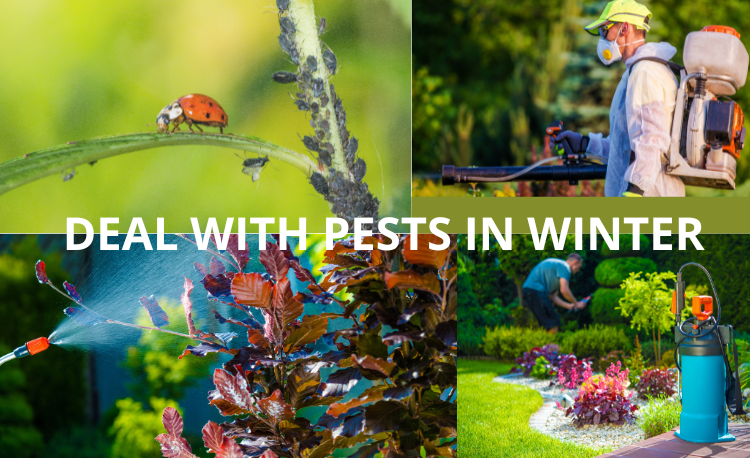IDENTIFY PESTS AND DAMAGE TO KEEP YOUR PLANTS HEALTHY THIS WINTER
Winter Bugs : How to identify common insects with thier damage on plants and what to do about it in a natural way without harmful side effects.
Houseplant Enemy #1 — Mealybugs: Mealybugs are soft scales that differ from armored ones because they don't build hard shells and can also crawl around. They're easy to spot because of their white, cottony exoskeletons. They suck sap and secrete honeydew
Damage: An infestation of mealybugs can literally suck the life out of a plant. Because mealybugs are mobile and multiply with breakneck speed, they quickly spread from one plant to another. Grumpy hates mealybugs!
Organic/Natural Treatment: Spray the plant thoroughly with neem-oil , repeat in 7 days. Maintain inspections weekly!
Houseplant Enemy #2 — Spider mites: Spider mites aren't really bugs or insects. They're tiny arachnids related to spiders about as big as a sharp pencil point. Like aphids and scales, they suck sap from leaves and stems and reproduce like crazed bunnies. Spider mites come in as many different colors as aphids. They congregate on branch tips and leaf undersides, often wrapping leaves and stems with very fine webs. If you see webs, your plants are in trouble.
Damage: The first damage you'll probably notice is speckling or bronzing of the foliage. As the problem worsens, leaves or needles yellow, brown, shrivel, dry, and drop. Flower buds wither. Branches die back. Severe infestations kill.
Organic/Natural Treatment: Spray the plant with neem-oil , or Indoor Pharm (made from plant oils). Repeat treatment every 7 to 10 days. Inspect the plant weekly!
Houseplant Enemy #3 — Aphids - These plump, little guys (above) are easy to spot because they huddle together like seals on a beach. Green ones are common, but they can just as easily be yellow, orange, red, or brown. They favor tender, young foliage and often congregate on flower buds and branch tips, although you can also find them on stems and the undersides of leaves.
Damage - Aphids suck the sap from plants and secrete a sweet honeydew ants like to eat. If you find aphids on your houseplants, don't be surprised if ants carried them there. Aphids multiply incredibly fast. They cause leaves to pucker, distort, and fall off. Infested flower buds shrivel and drop.
Organic/Natural Treatment - Add a couple of drops of neem-oil to a spray bottle, top up with water and shake to dissolve. Spray the solution liberally over the plant, remembering to reach all parts of the plant, including the undersides of leaves.
Houseplant Enemy #4 — Armored Scales - Brown, gray, or white, these weird bugs (above) get their name from how they feed on plants. Young insects crawl onto a plant they like, insert sucking mouthparts into the leaf or stem, drop off their legs, and build hard shells atop themselves for protection. The scales remain in place until eggs inside the shells hatch and the adults die. Regular contact pesticides don't work on them, because they can't penetrate the shell.
Damage - Depending on the type of armored scale, it can encrust entire leaves, stems, and branches. The result is yellowing leaves, dying branches, and a declining plant.
Organic/Natural Treatment - Inspect your houseplant carefully. If you find only a few scales, scratch them off —they can't crawl back. If there are lots, spray with neem-oil. Be sure to wet all leaf and stem surfaces. The oil will smother the scales.
Note - Before using a pesticide read all directions and precautions on the label. Because a curative is listed as organic/natural, directions and precautions still must be adhered to!
Looking for such gardening tips? Subscribe to our social networking page on Gardenicalive to get regular updates!

